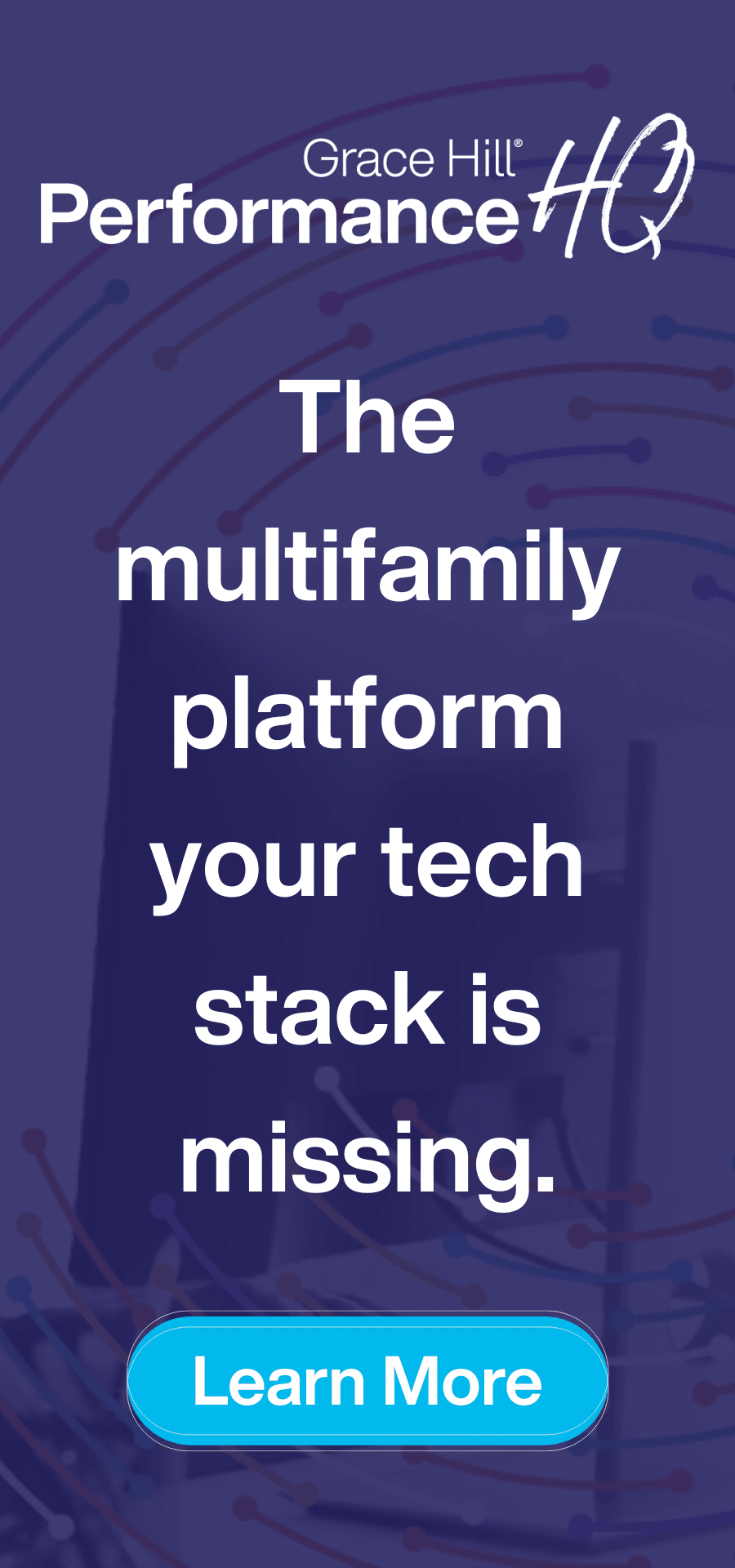The shift to virtual leasing has been swift and seismic, leaving many companies scrambling to adapt. In light of these rapid transitions, it’s worth asking yourself the following questions, which address the fundamentals of a change management strategy and are critical to achieving success across your portfolio:
- How has our company responded to the shift to virtual leasing? Are we prepared?
- Are our leasing professionals equipped with the tools, training, and support they need to succeed in this new virtual landscape?
- Do we have adequate plans to evaluate and adjust to ensure success in virtual leasing?
We get it; changes have happened quickly. But too often, leasing professionals and managers are forced to practice virtual leasing without the proper procedures and training in place. Without a clear change management strategy, the transition can be fraught with risk, causing confusion and stress for employees and creating the potential for negative customer experiences.
To navigate this shift successfully, it’s essential to take a structured approach to virtual leasing. By establishing clear policies, providing targeted training, staying informed about industry trends, and continuously refining your strategy, you can create a seamless and effective virtual leasing experience.
Let’s break down the key steps to ensuring your team is well-equipped to thrive in this evolving landscape.
Jump to A Section
- Determine Your Virtual Leasing Policies
- Provide Virtual Leasing-Specific Training
- Bringing It All Together: Completing the Change Management Loop
Determine Your Virtual Leasing Policies
The transition to effective virtual leasing requires many decisions around staffing, technology, accessibility, training, and oversight. To give your team clear guidance and ensure compliance, these decisions should be documented in your policies.
Key policy areas to consider include:
- Place of Work: Will employees work from home, the leasing office, or a hybrid model? Or will you have a centralized leasing model?
- Technology and Security: What hardware, software, and apps are required? What are the policies around accessing and using company and client data?
- Accessibility: Will you offer onsite tours, virtual apartment tours, or both? What accommodations will you make for people with disabilities?
- Training and Support: What training do employees need to succeed in a virtual environment? What ongoing support will be provided?
- Auditing and Compliance: What metrics will you track? How will you address risks, ensure a positive customer experience, and adapt policies and training over time?
- Fair Housing and Legal Compliance: How will you maintain compliance with Fair Housing laws and other regulations in a virtual setting?
- Brand Standards: How will you ensure virtual apartment tours and interactions maintain brand consistency?
- Content Management: How will you store and share virtual content such as photos, videos, and 3D tours while ensuring security and accessibility?
Next, write policies for your teams based on the decisions above. Doing so will remove uncertainty for onsite teams and managers trying to support their employees. The policies will also provide guidance for decision-making, build efficiencies, streamline processes, and help ensure compliance with laws and regulations.
By addressing these key areas in your virtual leasing policies, you’ll provide a clear roadmap for your team, promote consistency, and mitigate risk as you navigate the virtual leasing landscape.
Provide Virtual Leasing-Specific Training
Equipping your team with the right training is essential for success in virtual leasing. While the core elements of leasing — identifying needs, building value, overcoming objections, and closing — remain unchanged, virtual leasing necessitates specialized training to adapt to the digital environment.
A few examples of the types of training topics to consider include:
- Video Production and Presentation: Instruction on creating compelling video content and delivering engaging virtual tours.
- Live Tour Scripting: Developing scripts that guide prospects through the virtual apartment tour while highlighting key property features and benefits.
- Building Rapport Virtually: Techniques for establishing trust and connection with prospects in a virtual setting.
- Virtual Closing Strategies: Adapting closing techniques to the virtual environment to secure leases effectively.
➡️ Leasing Agent Tips and Tricks: How To Overcome Objections
Many leasing professionals are unaware of the potential of virtual leasing, are hesitant to use video, and are confused about the difference between online marketing and virtual leasing. Sadly, leasing teams struggle to capture and convert leads because they lack the tools to offer personalized and engaging unit-level video experiences.
Yet, the ability to “see” and “experience” your property are precisely the things potential residents desire. In fact, one in three renters said they were likely to sign a lease without physically touring the property.
Using virtual leasing and video tools by Realync to create engaging, property-specific media that drives website traffic and prospect engagement, you can minimize the stress of your onsite teams. By providing education on these topics alongside your organization’s policies, you empower your team and drive your success.
➡️ Level-Up Your Virtual Leasing With Realync
Bringing It All Together: Completing the Change Management Loop
The shift to virtual leasing isn’t just about adopting new technology — it’s about ensuring a seamless, high-quality experience for your team and prospective residents. And successfully managing change requires a clear understanding of both the transformation process and its impact on your team, prospects, and overall leasing operations.
A well-structured change management strategy helps you navigate this transformation with confidence, aligning policies, training, and performance evaluation to create a streamlined process. However, one of the biggest challenges in this shift is visibility — how do you measure what’s working, what’s falling short, and where compliance or customer experience may be at risk?
Without clear visibility into the virtual leasing process, property management teams may face unintended consequences, such as Fair Housing compliance concerns, inconsistent customer interactions, and employees struggling to adapt to new tools and workflows.
To navigate these challenges effectively, evaluating the current virtual leasing experience is essential. Here are two key questions to ask:
- Where are the gaps in communication, process consistency, or technology adoption?
- Are prospects receiving the same level of service as they would in an in-person leasing interaction?
You can refine your leasing approach and eliminate uncertainty by leveraging clear virtual leasing policies, targeted training, and data-driven insights from solutions like Mystery Shopping and Realync’s video solutions. This continuous feedback loop ensures that your leasing professionals have the resources and support they need to succeed while your prospects enjoy an engaging, efficient, and compliant virtual leasing journey.
Ultimately, the key to long-term success is an adaptable, well-informed strategy. With the right approach, your team can not only meet today’s virtual leasing expectations but also stay ahead of future industry shifts. Now is the time to assess where you stand in the change management process — and take the necessary steps to optimize your virtual leasing experience.


 Customer Support
Customer Support



